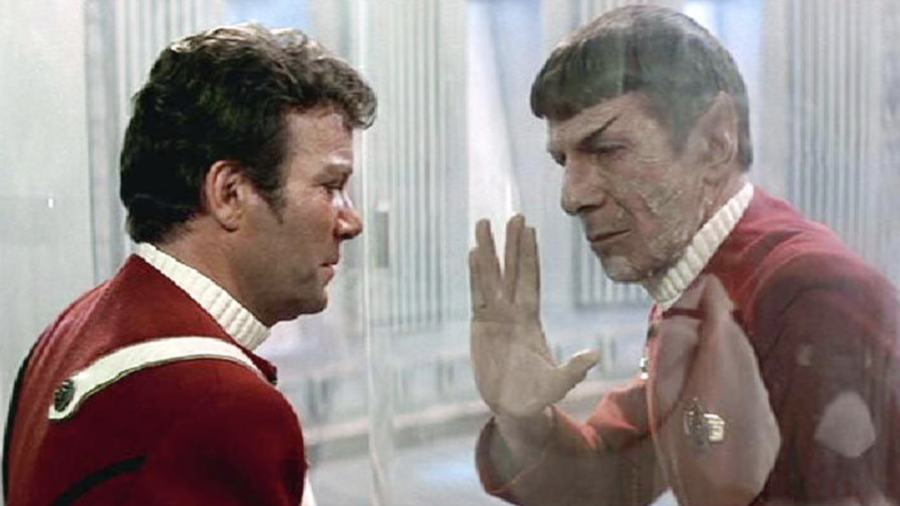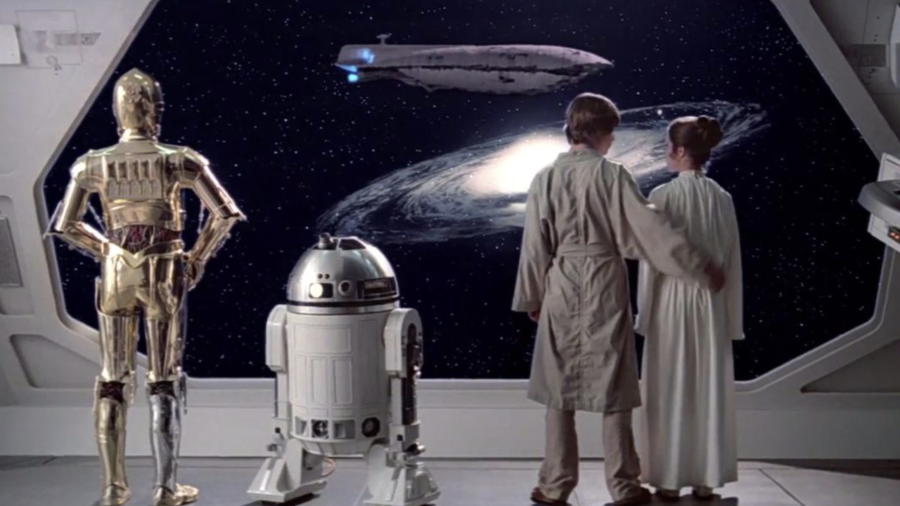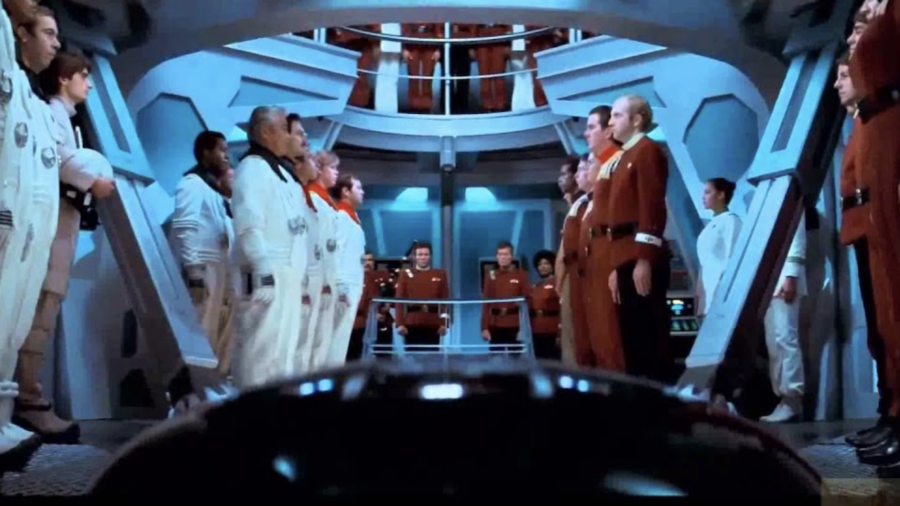The Best Sci-Fi Movie Endings Of All Time
Leave 'em wanting more.

When it comes to full cinematic experiences, it’s hard to beat a great sci-fi movie. There are new worlds, ventures into space, sometimes massive outcomes, and just a “bigness” to the whole thing you don’t find in other genres. And sometimes, the best sci-fi movie endings can rival the best things we’ve ever seen in movies.
Let’s take a look at the best sci-fi movie endings. Some of these are as memorable and iconic as they come.
Star Wars: Episode VII – The Empire Strikes Back

This is the one that really inspired the entire best sci-fi movie endings list, so of course, we’ve got to open with it. It’s a dark ending for a dark movie, with our heroes in a dire place.
Han is frozen in carbonite and being shipped off to the so-far-unseen Jabba the Hutt (the CGI special edition abomination doesn’t count). Luke’s minus a hand and wracked by the twin revelations that Darth Vader is his father and that Obi-Wan lied to him.
Luke’s world has been shaken to the core, and he’s lost some of that innocent optimism he had in the first film, leaving us to wonder, what will he be like when we see him again in the next film?
The future is uncertain, but we’re still left with a note of hope as Luke and Leia stare out at the massed Rebel fleet…
Back to the Future/Back to the Future II

Take your pick of the first or second movie for the best sci-fi movie endings. The original is by far the most iconic, with Doc Brown returning, dressed like a lunatic, and warning Marty that they have to travel into the future because “something’s got to be done about your kids!”
After just having had a blast watching Marty and the Doc’s adventures in the past, the tease of getting to see their future was thrilling. All the more so when Doc uttered the famous line, “Roads? Where we’re going, we don’t need roads.”
For me, though, I love the Back to the Future II’s ending even more. It parallels the first and plays up one of the more entertaining elements of the second movie: multiple versions of the characters running amok through the timeline.
It also makes the stakes more tangible. In the first movie, Marty’s kids, who we’ve never met, are the ones in trouble; in the second, it’s the Doc who needs rescuing, and we love that crazy old dude.
Blade Runner

With Blade Runner, the question is always, “Which version?” For my purposes, I’ll take any version that jettisons the mega-happy version with Deckard and Rachael flying away into The Sound of Music. The beautifully ambiguous ending of the most recent versions is damn near perfect. No wonder it’s considered one of the best sci-fi movie endings.
Rachael stepping on the origami unicorn, Deckard picking it up and remembering Gaff’s line, all leading up to note-perfect bit of performance by Harrison Ford, a simple nod as Deckard accepts his fate, turns to leave, and Vangelis’ score kicks in.
(It also doesn’t hurt that this ending follows one of the best scenes ever put to film, Roy Batty’s “Tears in rain” speech.)
Children Of Men

Alfonso Cuaron’s Children of Men is a movie perpetually bouncing between hope and despair, and that holds true all the way through the film’s final moments.
Theo (Clive Owen) has helped Kee (Clare-Hope Ashitey) give birth to her daughter, the first infant born in two decades, and the pair have made their way onto a small boat, hoping to rendezvous with the Human Project.
As we realize that Theo has been fatally shot, there’s no way of knowing which way things are about to turn. Will Kee and baby Dylan be rescued, or will we be left with an ambiguous and heartbreaking final image of the boat alone in the fog?
When the hopeful ending does finally come, Theo’s sacrifice makes it feel well-earned.
Invasion of the Body Snatchers

You can take your pick from the various cinematic adaptations of Jack Finney’s 1955 novel. I love the 1956 version starring Kevin McCarthy, a razor-sharp satire of McCarthyism and Cold War paranoia.
But for my money, the closing scene of the 1978 version is by far more iconic and terrifying. We see Matthew going about his day in a world where the pod people have almost completely taken over. Nancy spots him on the street and calls to him, thinking he’s still an ally.
Instead, he raises a hand and emits a piercing alien scream. The first time you see it, it’s scary as hell, and that final image has been referenced and parodied countless times since.
Planet Of The Apes

Speaking of ending that have been riffed on for decades, this may be hands-down the most infamous science fiction movie ending of all time, and certainly one of the most iconic twists ever.
Considering its lasting impact, it’s no surprise the screenplay for the original Planet of the Apes was penned by none other than Twilight Zone creator Rod Serling. The guy knew a thing or two about last-minute twists, and Apes’ final moments live up to his high standards.
The slow reveal of the ruined Statue of Liberty, first glimpsed as the camera passes behind the spikes on her crown, allows the emotional weight to hinge on the reaction of Charlton Heston’s marooned astronaut.
The audience is given just enough time to hopefully get a dreadful sense of what is coming before the Statue is revealed in all its crumbling glory
Star Trek II: The Wrath of Khan

Sometimes, one of the best sci-fi movie endings is solely about the final few moments before the credits roll. But sometimes, it’s the lead-up to that final image that really sells it, one perfect moment following the other in close succession.
In Wrath of Khan, the audience is still reeling from the sacrificial death of Spock, and director Nicolas Meyer doesn’t give us time to recover from that shock. We’re taken to Spock’s funeral, where the emotions run high and rise even higher when Kirk’s voice breaks on the word “human.”
As Spock’s body is launched into space, James Horner’s version of “Amazing Grace” swells, and I am reduced to a blubbering baby. Toss in Kirk’s line, “I feel young” and Nimoy’s closing monologue and I am seriously a wreck. As it should be.
The Thing

This one is one of the best sci-fi movie endings because it’s a perfect example of how well an ambiguous ending can work. John Carpenter’s The Thing leaves us in the same state the characters have been in for most of the movie: uncertain and paranoid.
After the bloodbath endings for most of the cast, after the nasty alien critter reveals itself in increasingly more disturbing forms, it finally comes down to a brilliantly simple closing scene: two men sitting across from each other, unsure whether the other one is human.
Kurt Russell and Keith David both nail these closing moments, regarding each other with suspicion, dark humor, and a little healthy fatalism. What happened after the credits rolled? Why don’t we just wait here for a while…see what happens.
12 Monkeys

12 Monkeys is one of my favorite movies of all time, and it all comes down to the haunting, heartbreaking ending where Cole’s childhood memories finally gain context, and he finally catches up with himself in the saddest way possible.
There are tons of different approaches to time travel. Can you change the future? Do all possibilities exist simultaneously in different realities, branching like a tree? Or, to borrow a phrase from another Bruce Willis time travel flick, is the path a circle, round and round?
12 Monkeys opts for the latter approach, and no other film has done it so beautifully, tragically, perfectly.
It’s a testament to director Terry Gilliam’s masterful composition that the sequence can even be watched with the sound off without losing much of its impact.
2010: The Year We Make Contact

I’ll typically find any excuse I can come up with to talk about 2010 on here, but that’s because it was one of the movies that I most loved while growing up. And it’s still one of my favorite movies of all time. So of course it’s going to be on the list of best sci-fi movie endings.
While Stanley Kubrick’s ambiguous, expressionistic ending to 2001 may be the more famous of the two, 2010’s ending is far more satisfying to me.
More than anything else, 2010 excels at creating the “sense of wonder” that the best science fiction evokes, and its climactic sequence delivers both on that front and on an emotional level, granting redemption to HAL, answering some questions while presenting others, and leaving it all wrapped up in a closing monologue that is both hopeful and endlessly quotable.
It’s…something wonderful.













Login with Google